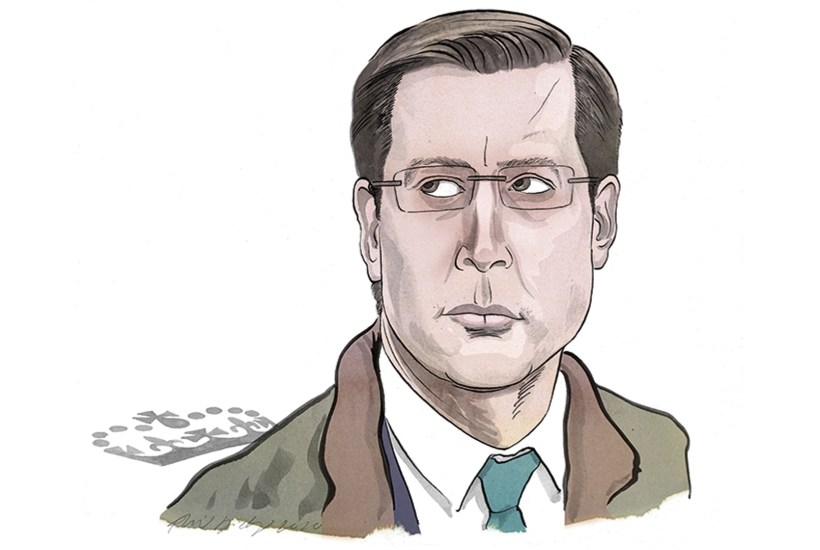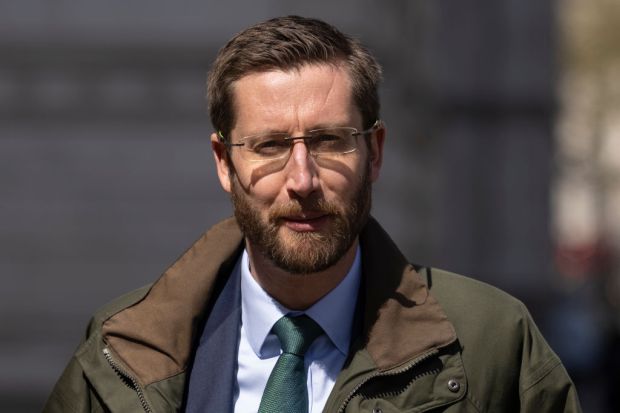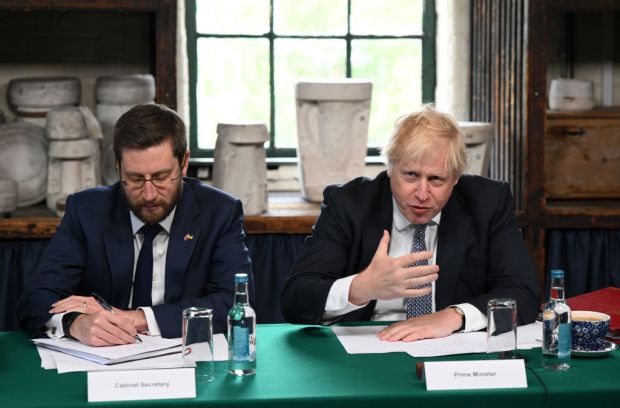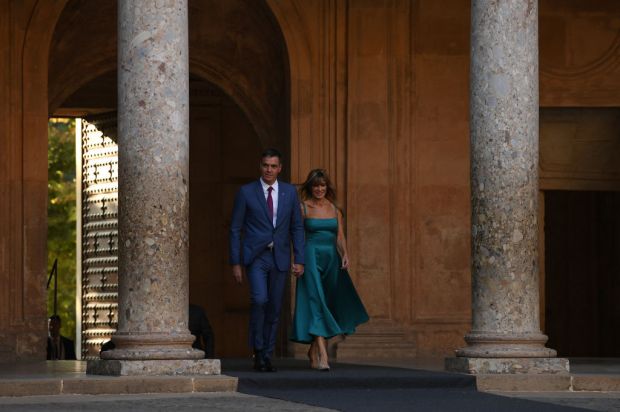Boris Johnson does not get everything wrong. The appointment of Simon Case to be head of the civil service at such a young age is bold and imaginative. Those who have observed his performance in senior roles all seem to regard him highly. But there could be two problems, both related to his youth: he has never run a large organisation and he has never really experienced failure. By the time that most officials and politicians reach his level of seniority, they usually know what is meant by ‘after such knowledge, what forgiveness.’ They are aware that what goes up can also come down; that an idea which, on the drawing-board, seemed world-class may fail in the actual world. Then again, a career which has consisted of applause and golden opinions, success followed by success, does build confidence. He will need that, so long as it is tempered by realism.
There is also a piquant paradox. In some quarters, the Case appointment has been seen as the latest episode of Johnson’s Downing Street conflict with the traditional civil service: another key position falling to the hands of Dominic Cummings. I suspect – and hope – that this is a complete misreading. For Simon Case to succeed, he will have to persuade senior ministers – in some cases against their own instincts – that the British civil service has immense, if often latent, strengths. Properly used, this could help to produce good government. If spurned and insulted, it will become sad and demoralised. Its subsequent performance would make Sir Humphrey seem dynamic. The civil service has suffered in recent years – that has not been good for the country.
It is worth reminding ourselves how Margaret Thatcher did things. Apart from abolishing the Civil Service Department and the Central Policy Review Staff – both recent innovations – she did not restructure the machinery; she merely galvanised it. In the unlikely event of her turning up on a psychiatrist’s couch and being asked to respond to ‘civil servant’, her response would have been predictable: ‘Pah. If they were any good they’d be doing a real job in business, not pushing paper around Whitehall.’ But if the trick-cyclist moved on to Robert Armstrong, Robin Butler, Charles Powell, Robin Renwick and quite a few other names, the tone would totally change: ‘Excellent men. Where can I find Ministers who are half as effective?’
After the days of Northcote/Trevelyan, assisted by Gladstone, in the mid-Nineteenth Century, the principles governing the British civil service were firmly established. Selection and promotion should be based on merit; civil servants would be impartial. Whatever their own views, they were expected to serve the ministers in government. They were generalists, which aroused recurrent criticism. Those at the head of the service did tend to believe that arts graduates who had been trained to think and write and could, in Isaiah Berlin’s phrase, ‘spot the bunk’, would bring a rare quality to Government: common sense.
Over the decades, able ministers generally came to respect able civil servants. The politician might be looking for a chance to accelerate, but if he were wise, he would understand that a car needs a brake as well as an accelerator. A minister once said that dealing with his permanent secretary sometimes resembled stuffing newspaper through wire mesh. But even if this could at moments be exasperating, it ensured that the end product would be ready for the rough seas of debate and implementation. Equally, ministers who complain that they are being frustrated by their officials are usually demonstrating a lack of political self-knowledge. The civil servants would merely be doing No.10’s bidding. The instruction would have been clear: ‘This minister is for the chop at the next reshuffle. In the mean-time, keep him out of trouble. Do not allow him to choose between tea and coffee without cabinet-office clearance.’
Then came 1997 and the Blair era. Some senior civil servants expected difficulties. Politicians tend to regard impartiality as Don Giovanni did celibacy: with incomprehension. Officials had been serving Tories for 18 years – ergo, they themselves must be Tories. In fact, by 1997, and despite personal regard for John Major, there was a widespread feeling that the Tories were burnt-out and needed to recuperate in Opposition. Moreover, Tony Blair seemed safe and sensible. Civil servants assumed that New Labour would arrive in office surrounded by young spads and full of suspicion. Give them a few weeks, and when they saw what high-powered officials could deliver, all would be well. This did not happen. Yes, the Blairites were obsessed by delivery, but usually this meant favourable media coverage. The new Government appeared to want to turn the whole of Whitehall into a press office, while promotion on merit gave way to promotion by quota. In one important respect, the Blairites had failed to out-grow adolescent leftism: they did not understand the value of institutions.
It cannot be assumed that all institutions are always excellent at all times. In a healthy political system – and ours has been healthier than most – there is change and evolution. But sensible Tories will always remember Lord Falkland’s dictum: ‘When it is not necessary to change, it is necessary not to change.’ The endless fascination of Tory politics is the constant intellectual effort to decide when it is necessary to change. One wonders whether Boris Johnson agrees with that. Perhaps he prefers to make it – and himself – up as he goes along. We can be certain that Dominic Cummings does not agree; to be fair, he has never claimed to be a Tory. I wonder if he will ever realise what a disadvantage that is.
If he were not committed to political celibacy, Simon Case would make a good Tory. He now has two related tasks. The first is to restore stability to the civil service. Although no-one will ever bang pots and pans in the street on their behalf, diligent civil servants are entitled to feel valued. The second is to restore stability to the heart of government. After a Cabinet meeting, Melbourne once told his colleagues that ‘it does not much better which we say but we must all say the same.’ Before any important initiative, Ministers – and the PM – must get back into the habit of thinking everything through, agreeing on it all, and then sticking to the script. The recent spate of U-turns and confusion has undermined the dignity and the credibility of the government and the PM, just when they need both.
We are heading into one of the most difficult periods in modern peace-time history. If Simon Case can be the pilot who weathers the storm, he will have earned a high place in history before he turns fifty. As for Boris: that is going to be interesting. But Mr Case is a sound choice. Let us hope that there will be others to follow.
Got something to add? Join the discussion and comment below.
Get 10 issues for just $10
Subscribe to The Spectator Australia today for the next 10 magazine issues, plus full online access, for just $10.





















Comments
Don't miss out
Join the conversation with other Spectator Australia readers. Subscribe to leave a comment.
SUBSCRIBEAlready a subscriber? Log in